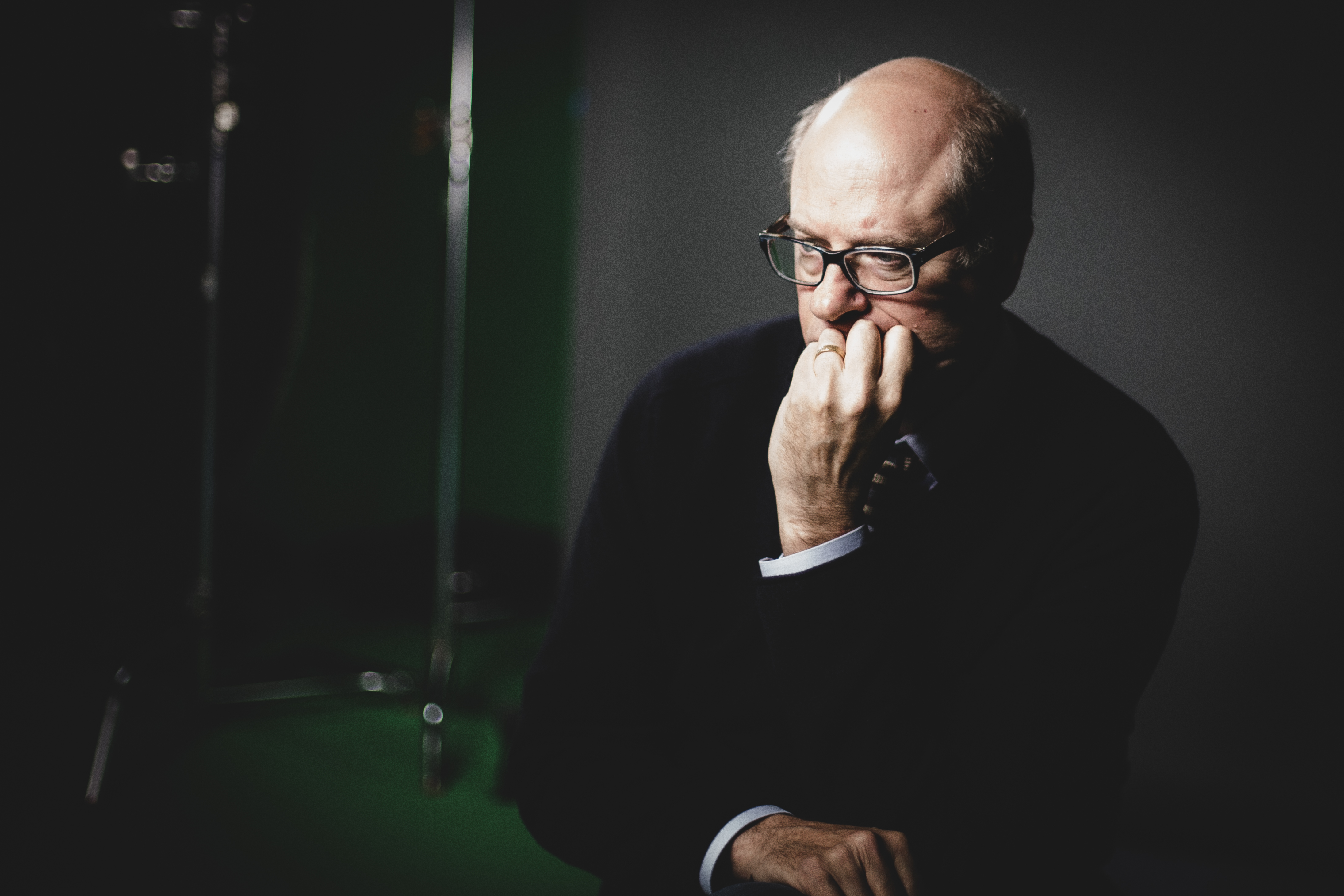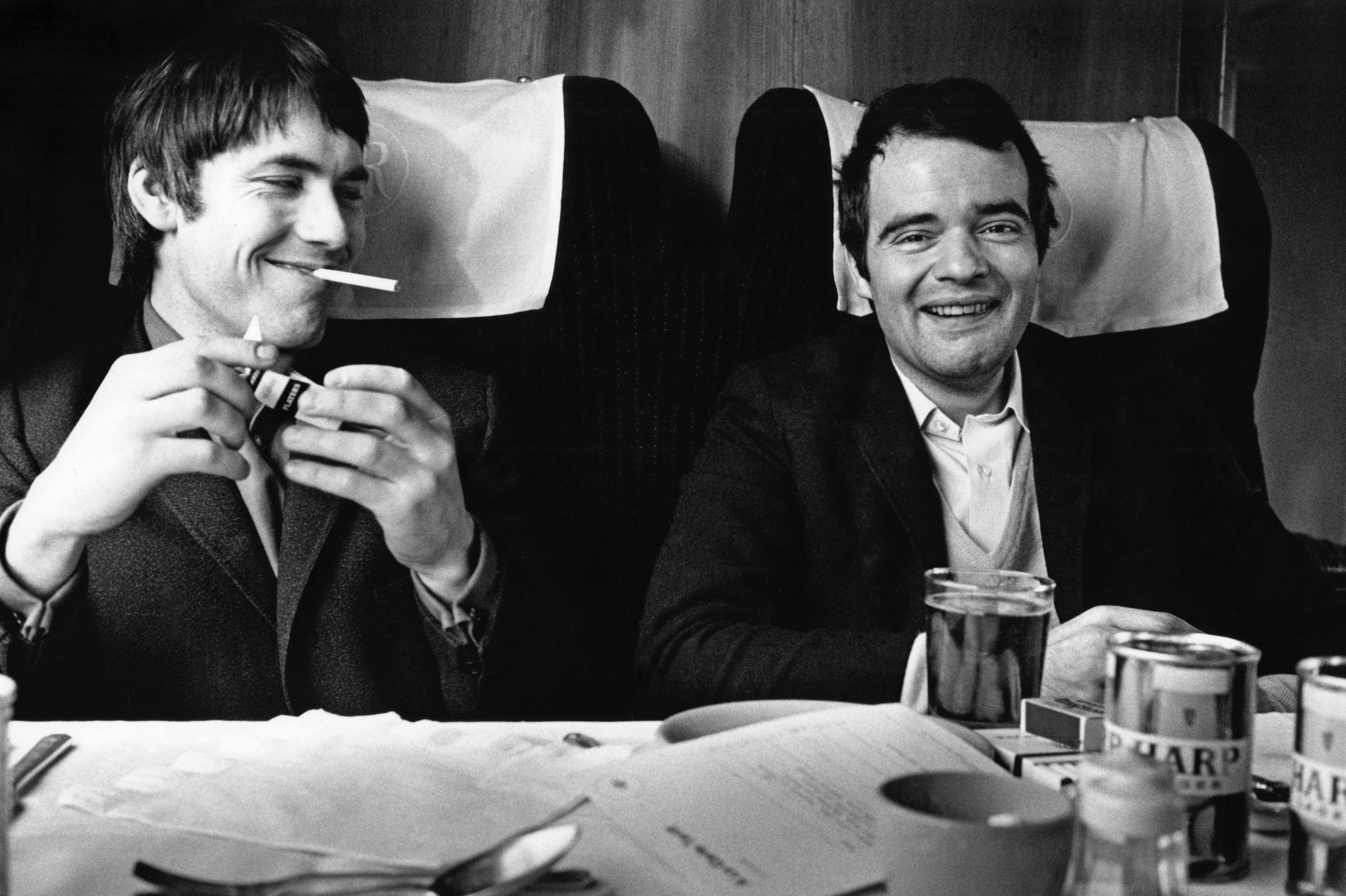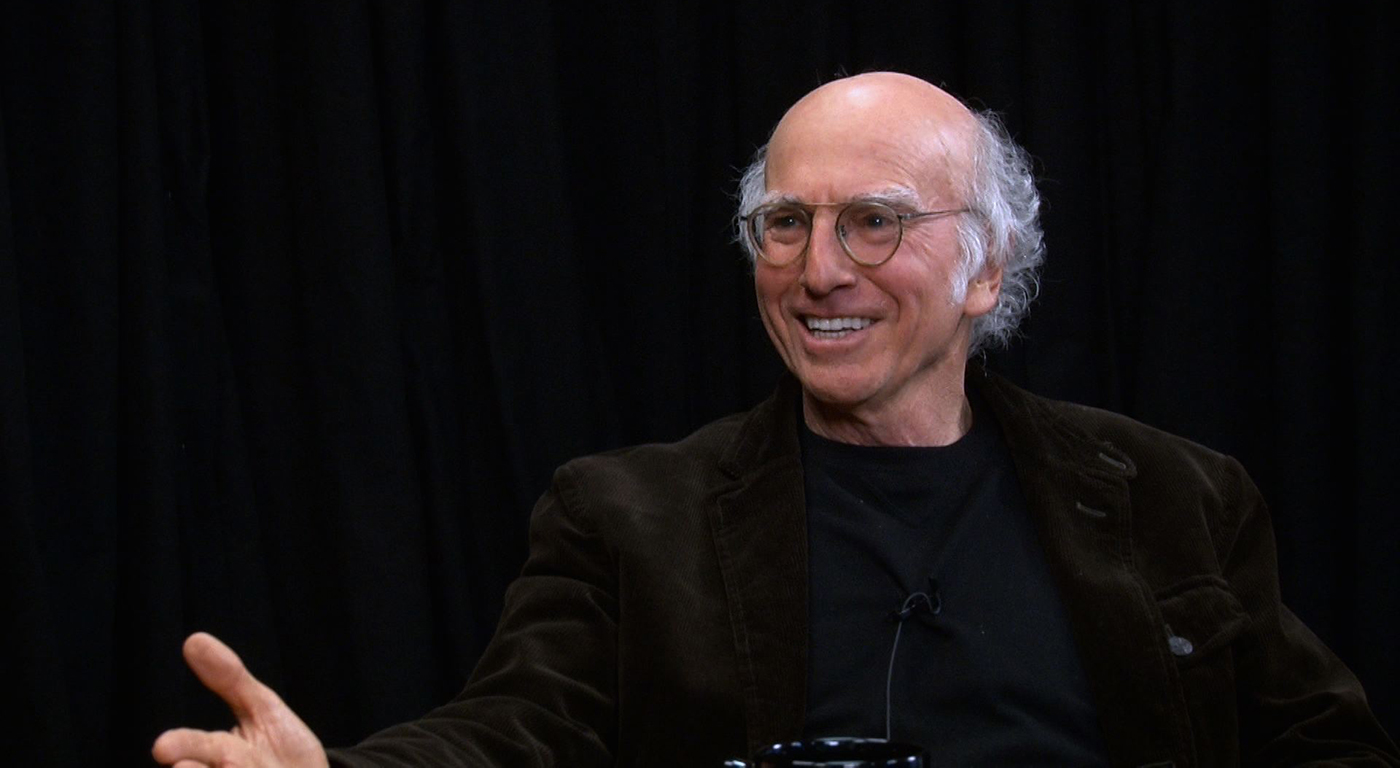DIRECTOR FRANCOIS GIRARD AND screenwriter Don McKellar accompanied their recent collaboration, The Red Violin, to the 1999 Seattle International Film Festival, talking to audiences and journalists alike in their weekend visits. With a little cajoling, I managed to find a time to sit down with the collaborators together. Their first joint effort was 32 Short Films About Glenn Gould, and they worked in The Red Violin on and off for over five years. The interview was as much a conversation between the two of them as with me, as if they couldnt wait to compare insights.
Sean Axmaker: How did The Red Violin get started as an idea?
Francois Girard: After Glenn Gould, the three of us[producer] Niv Fichman, Don and mewe were looking for something else to do together, so for a long while weve been discussing many ideas and trying to find something. One day I was in London and I had this idea of telling a story of a violin and a few days after I was in Berlin with Don and Niv where we were presenting 32 Short Films and we talked about this idea and it became alive very quickly. A few days after, we were already building the shape of the story and we got caught up in the idea, for years. That was five years and a half ago and were still talking about it.
Don McKellar: Francois is brilliant with coming up with these ideas. I remember when Niv and Francois first approached me about doing 32 Short Films About Glenn Gould, or rather doing a biography about Glenn Gould, I was very skeptical because I knew Glenn Goulds life a little and I knew that it was very undramatic, but when I realized the implication of this 32 Short Films idea was very provocative and I got excited by it. I think the same is true about The Red Violin. I didnt want to do another biography film but when Francois suggested we do a biography of an instrument it was an exciting challenge and it was such a challenge to the idea that it would cross so much time and so many languages that I couldnt resist.
SA: Where did you get the idea of suturing the stories together with the fortune teller of the first episode and the auction of the last episode? Its like its bookended by these two events, one which predicts whats going to happen and one which draws back the history from what already happened and ties it all together.
FG: That came very early. I guess that the biggest challenge of The Red Violin is to give life to an inanimate object, and I would say that the other big challenge is to turn those five stories into one, make them feel like one story, so almost every structural idea, including the double narrator idea, is totally in response to that problem. We have two narrators bridging the whole thing and tying things together and then you have the convergence at the auction at the end where all the stories are represented, and you have the progression through age. The whole film is based on the lifetime progression thematically. You have the unborn child and then the child and the young adult and then maturity and then eventually youre back to the age of the master, so all those things are there in an effort to tie the stories together and build one story, the life of the violin, and escape from the five episodes as much as you can.
SA: How did you handle all those different languages in all those different countries?
FG: If were talking about the shoot or working with actors, I came to the conclusion that its actually an advantage. (Laughs.) Truly, I have this whole theory. It has to do with distance. If you work in Mandarin with Sylvia Chang and she reads the text in Mandarin, first of all you know exactly what shes talking about because youve been living the text for so long, so you know exactly where we are, youre never lost in what shes saying. And when youre not caught in the word-by-word and the wording, the accenting, it sort of forces you out
DM: You cant do line readings.
FG: Yes, exactly. Youre forced to talk to the actors in essential terms like energy, emotion, musicality, all of that transpires really clearly, even more clearly if youre working in a different language. So I really thought it was not a handicap at all. But the writing part (both laugh), like when we came work with all the writers, it was very complicated.
DM: I found it really fascinating because as Ive said before, we realized at one point that we were just writing the subtitles for the film, we had written the text and slaved over the exact wording and realized that thats not what they were going to be speaking, so we went to these different countries and chose writers, real writers, from each country. Not just translators, but writers that we trusted and who knew the period, who could write dialogue that was convincing. Actually it was really exciting for me to be able to meet these different writers and hand it over and discuss nuances. It was really complicated and was probably hellish for Francois because a lot of it was happening during the shooting.
FG: I remember the prep time, Don, where I was traveling all around. That was the time I would check into 20 hotels in 25 days and I would get the text from those writers and send it back to Don so we could talk about it. I found myself often surrounded by rolls of faxes.
DM: It was exciting for me because the faxes would come in and you see once they came in the languages, we would have to translate them word by word into English so that we knew exactly what they meant and I could judge whether that was what I meant by my English expression. It was very complicated but
FG: Very challenging intellectually.
SA: So putting it all together, you were a producer at the same time you were a writer trying to wrangle the pieces together.
DM: Kind of.
FG: We did have a producer who was doing his job and more
DM: But there was that sort of diplomatic side. Were quite a tight unit with Niv, and I think theres overlap in every area. I was brought to China and was there for five days trying to clear the script on a sort of diplomatic mission and that kind of thing. It was a pretty rare opportunity.
FG: There was an incredible story about the Chinese refusing us at one point to shoot in Shanghai.
DM: At many points.
FG: Well, actually what happened is the first time we went there, Niv, Don and I, we were not naﶥ to the point of not knowing that this was going to be difficult. We were dealing with the cultural revolution shot in Shanghai. Of course we knew it would be difficult at one point. But we went there the first time, the three of us, and connected with actors and crews and studios and everything went really well. We even chose locations to start with. And then six or seven months later I went back with my keys, DP and designers and we continued the work and everything was very, very smooth. I was actually surprised, but I was not totally calm about because I thought problems might come later, and they came. A few days before the shooting of principal photography, I was in Montreal and we received this letter saying, “We have 3,000 years of history and you have 300 in your film, and why did they have to cross in 1969?” Basically they were saying: Youre welcome in Shanghai as long as youre not dealing with cultural revolution scenes. I couldnt handle that because I had to shoot Montreal and then Europe and Niv and Don went the first time, and I think Niv went back four times.
DM: It was really grueling.
FG: It became like a diplomatic negotiation.
DM: It really was. We were sitting around the table with the Minister of Culture, the Canadian Cultural Attach鬠head of the Film Commission in China, head of the studio, back and forth. I never experienced anything like it. At first they denied the cultural revolution existed. They hadnt shot a co-production there in over two years. No foreign film company had shot in China for that long and they were quite angry with America because Red Corner had just shot and had sort of cheated them by sneaking into China, and theyre not the biggest fans of Richard Gere anyway, so for a long time we had to convince them we were not Americans, that we understood their history.
FG: Build mutual trust. And this went on and on and after Don went there to discuss the script they were still asking a few things. First of all they helped us get a few details more accurate, but Niv had to bring the script higher and higher and eventually it went up to the Propaganda Minister who brought it home and called his people the day after and said, “Okay, fine, they can come in.” So I came in. Don had done the big work of getting them to understand our intentions, but still they wanted changes. For two weeks I got myself involved in the negotiations. One day I would take two days out of a scene.
DM: All strategic.
FG: You take two lines out and you say, “Fine, all right, all right,” and two days later you bring it back and you say, “I moved it here, I think it sounds quite different.” I remember the day I called you in Toronto and said, “Don, we have all the lines in. A couple have moved but theyre all there.” So it was great because eventually they really were.
DM: In the end we got everything we wanted and we got stuff shot in China that even the Chinese havent been allowed do.
FG: They really wanted it to happen, the really supported the project.
DM: Once it was allowed, the people we were working with were really exciting to work on a project that dealt with things that they had all experienced.






